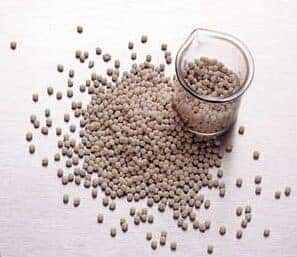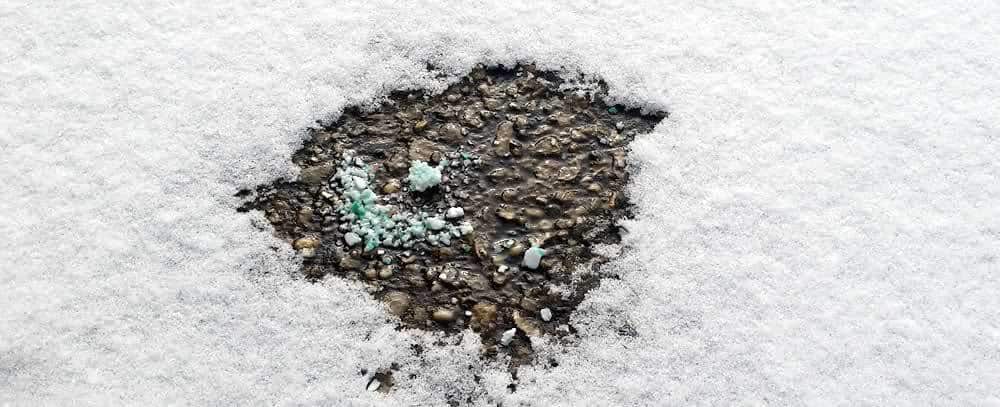Two popular ice melting products are Calcium Chloride (CaCl2) and Calcium Magnesium Acetate (CMA). These products can be used instead of rock salt for your ice removal needs and we wanted to compare the two.
Which one is better?
They both have some strengths and which one to use will largely depend on what your specific needs are. The best place to start is with their similarities.
What do Calcium Chloride and Calcium Magnesium Acetate have in Common?
- They are both are less caustic to concrete and asphalt than rock salt. In other words, they don’t destroy your concrete as quickly as rock salt will.
- They are both pet friendly
- They are both plant friendly
- They both work well as a pavement pre-treatment, adhering to concrete or asphalt and preventing snow or ice from bonding to the pavement. This makes clearing snow easier and, with adequate amounts, should prevent ice from forming in the first place.
- They don’t create a “runoff brine” that leaves with the melting snow. One application can sit on the pavement through more than one light snow.
- They both can be mixed with rock salt or sand for spreading.
- They both can be used in a brine solution to treat surfaces (brine is a salt-water solution that ice management teams sometimes spray on instead of spreading the product dry)

What is Great About Calcium Magnesium Acetate (CMA)?
- There is absolutely no chlorine in CMA. Chlorine is the primary reason why deicers eat away at pavement and structures they come in contact with. CMA is about as corrosive as tap water. It has very low corrosive properties.
- CMA has low toxicity to plants and animals and is completely biodegradable.
What Are the Cons of Calcium Magnesium Acetate (CMA)?
- CMA only melts down to about 15ºF, the same temperature as rock salt.
- It is not great at melting snow (rock salt works much better for this purpose). You will still need to plow or shovel even light snows if you only use CMA.
- CMA works best as a pretreatment on pavement to keep snow from sticking or for melting ice.

What is Great About Calcium Chloride?
- Calcium Chloride melts ice down to -25º, which is colder than the working temperature of any other commonly available ice melting product.
- Calcium Chloride works fast. Twenty minutes after application at 20º, it can melt twice as much as rock salt.
- Calcium Chloride tends not to leave residue, so it is great to use in front of building entryways (similar to Magnesium Chloride). This fact means, when the snow tracked in dries, you do not get that grey film sitting on top of the flooring like with rock salt.
- Calcium Chloride helps make dirt roads more compact.
- Calcium Chloride helps keep dust down and is used as a dust treatment on roads, at construction sites, and in horse arenas (though Magnesium Chloride is more popular for this purpose).
What Are the Cons of Calcium Chloride?
- There is only about 1/3 the chloride in Calcium Chloride compared to rock salt, but it still contains chlorine. The small amount of Chloride means Calcium Chloride has a slightly caustic effect on pavement and other surfaces. While it is much less caustic than rock salt, it is still harder on surfaces than CMA.
- Calcium Chloride costs significantly more.
Should I Use Calcium Chloride or CMA?
If you need the more environmentally friendly ice melt of the two options, then you will want to stick with CMA. CMA is completely biodegradable and less expensive than Calcium Chloride.
If you need to melt ice or snow in temperatures below 15ºF, Calcium Chloride is your obvious choice. You also want to stick with Calcium Chloride on dirt roads since it does help with dust control and soil compaction.
To be sure, we love both products. They are both environmentally friendly when used properly and they both have a good value for the money you spend when used as intended.

